As a BetterHelp affiliate, we receive compensation from BetterHelp if you purchase products or services through the links provided
Dissociation and ADHD are two distinct mental health conditions that often present uniquely. However, recent studies and clinical observations have raised some questions about whether dissociation—often associated with trauma and dissociative disorders—could also be a symptom of ADHD. Understanding the potential link between these conditions can offer insight into appropriate diagnosis and treatment options.
Dissociation refers to a disconnection between a person’s thoughts, emotions, and physical sensations, while ADHD (attention deficit hyperactivity disorder) is a neurological disorder characterized by inattention, hyperactivity, and impulsivity. Though they may initially appear unrelated, the possibility of dissociation as a symptom of ADHD merits exploration due to overlapping cognitive and emotional processes involved in both conditions.
Key Takeaways
- Dissociation may be related to ADHD through overlapping cognitive and emotional processes.
- Recognizing the potential link is important for appropriately diagnosing and treating both conditions.
- Further research and understanding of the connection could lead to more effective coping strategies and recovery options.
 Understanding Dissociation
Understanding Dissociation
Dissociation is a psychological phenomenon in which an individual experiences a sense of disconnection from their thoughts, emotions, behaviors, and even their sense of identity. It can manifest in various ways and often arises as a coping mechanism in response to trauma or overwhelming stress.
In the context of ADHD, dissociation can be seen as a symptom, though it is not among the core diagnostic criteria for the disorder. Individuals with ADHD may experience dissociation due to difficulty regulating attention and emotions. This can lead to feeling detached or disconnected from their surroundings and themselves.
Despite not being a core symptom of ADHD, dissociation can significantly impact an individual’s daily functioning. It can interfere with their ability to engage in tasks, maintain relationships, and manage emotions effectively. Consequently, addressing dissociation in individuals with ADHD is crucial to improving their overall quality of life.
The relationship between dissociation and ADHD is complex, as both conditions share common features, such as difficulty regulating attention and emotions. In some cases, individuals may develop dissociative symptoms to cope with the challenges associated with ADHD. However, it is essential to note that dissociation can occur independently of ADHD, and not all individuals with ADHD will experience dissociative symptoms.
To further understand the connection between dissociation and ADHD, it’s vital to recognize that dissociation encompasses a spectrum of experiences, ranging from mild daydreaming to severe dissociative disorders. In milder forms, dissociation may manifest as occasional daydreaming or losing track of time. Individuals may experience a complete disconnection from their memories, identity, or consciousness in more severe cases.
In summary, dissociation can be a symptom of ADHD, though it is not part of the core diagnostic criteria. The relationship between the two is complex, and sufferers may experience dissociative symptoms as a coping mechanism for the challenges of ADHD. Addressing dissociation in individuals with ADHD is essential for improving their daily functioning and overall quality of life.
 The Nature of ADHD
The Nature of ADHD
Attention Deficit Hyperactivity Disorder (ADHD) is a neurodevelopmental disorder that affects millions of children and adults worldwide. A persistent pattern of inattention and hyperactive-impulsive behavior characterizes it.
Individuals with ADHD struggle to focus, organize tasks, and manage time effectively. The inattention and focus difficulties might exhibit in careless mistakes, forgetfulness, and an inability to complete tasks. Hyperactivity often manifests in children as constant movement, fidgeting, or excessive talking. Impulsive behavior in ADHD includes but is not limited to interrupting others, blurting out answers, and acting without considering consequences.
Another significant aspect of ADHD is emotional dysregulation. People with ADHD may experience intense emotional reactions to positive and negative stimuli, sometimes leading to mood swings and struggles in social interactions. Emotional dysregulation can also impact self-esteem and contribute to feelings of frustration, hopelessness, and irritability.
When it comes to treatment for ADHD, a multimodal approach is often recommended. Medication, such as stimulant medications, can help improve symptoms by increasing dopamine and norepinephrine levels in the brain. These chemicals are essential for regulating attention and activity. Non-stimulant medications can also be prescribed for certain cases, particularly those who cannot tolerate or do not respond well to stimulants.
In addition to medication, behavioral therapy, and lifestyle changes are crucial in managing ADHD. Behavioral therapy teaches individuals with ADHD new skills to manage their symptoms, improve organization, and establish routines. Lifestyle changes like regular physical activity, proper nutrition, and a consistent sleep schedule can help alleviate ADHD symptoms.
Overall, understanding the nature of ADHD and the variety of symptoms that come with it assists in effective treatment and management. By finding the right combination of treatments, individuals with ADHD have the potential to lead fulfilling and successful lives.
 Symptoms of Dissociative Disorders and ADHD
Symptoms of Dissociative Disorders and ADHD
Dissociative Disorders
Dissociative disorders are a group of mental health conditions characterized by disruptions in memory, consciousness, and identity. Some common types of dissociative disorders include dissociative identity disorder (previously known as multiple personality disorder), depersonalization-derealization disorder, and dissociative fugue. These disorders often result from traumatic experiences and can manifest in various ways.
In dissociative identity disorder, individuals may experience separate, distinct personalities (also known as alters) that possess their thoughts, emotions, and behaviors. This can lead to confusion, memory gaps, and unexplained changes in behavior.
Depersonalization-derealization disorder involves episodes where a person feels detached from their body (depersonalization) or surroundings (derealization). This can make the individual feel as if they are observing their life from outside their body or if their surroundings are unreal or dreamlike.
Dissociative fugue is a rare disorder characterized by sudden, unplanned travel or wandering, accompanied by amnesia for one’s personal history. This can lead to confusion, disorientation, and significant distress.
 ADHD
ADHD
Attention deficit hyperactivity disorder (ADHD) is a neurodevelopmental disorder characterized by inattention, hyperactivity, and impulsivity. Although not a dissociative disorder, some of its symptoms may mimic aspects of dissociation.
One such symptom is “zoning out,” where an individual with ADHD may become lost in thought, appearing disconnected from their surroundings. This can lead to forgetfulness and disorganization.
Impulsive behavior is another common symptom of ADHD. Those affected may act without fully considering the consequences, leading to rash decisions and sometimes risky behaviors.
It is important to note that while dissociative disorders and ADHD share certain symptoms, their causes, treatments, and overall experiences differ significantly. Appropriate assessment by a mental health professional is necessary to diagnose and differentiate between these conditions accurately.
Common Causes
Dissociation might be a symptom of ADHD, but it is also important to explore its common causes. One of the primary triggers that lead to dissociation is trauma. Traumatic events in an individual’s life can create profound and enduring psychological impacts. Both childhood and early childhood traumas, such as emotional abuse, physical abuse, or neglect, can result in dissociative symptoms.
Stress plays a significant role in causing dissociation as well. An individual exposed to high levels of acute stress due to personal encounters or work-related issues may experience dissociation. It acts as a coping mechanism to disconnect from the overwhelming feelings that stress provokes.
Exposure to war can have particularly devastating effects on one’s mental health. Soldiers and civilians living in conflict zones often experience dissociative symptoms due to the distressing situations they encounter regularly. This traumatic experience typically arises from witnessing violence, death, and constant fear.
Abuse and neglect during childhood significantly contribute to the development of dissociative symptoms. Children who suffer from emotional, physical, or sexual abuse and those who experience neglect from their caregivers are more likely to dissociate to detach themselves from their painful reality.
In some instances, dissociation is associated with a traumatic event later in life. A person might experience sudden exposure to a life-threatening situation, such as a car accident, natural disaster, or an act of violence. The acute stress resulting from these events can trigger dissociation to cope with the intense emotions that follow.
Lastly, torture is another factor that can lead to dissociation. Harrowing experiences like this push human endurance to its limits, causing the mind to seek escape through dissociative coping mechanisms.
In summary, multiple factors can cause dissociation, ranging from varying trauma and stress to extreme situations like war and torture. Recognizing these causes is crucial to understanding the relationship between dissociation and ADHD and supporting those who experience these symptoms.
 Effects on Memory
Effects on Memory
Dissociation is a psychological phenomenon that can affect individuals with attention deficit hyperactivity disorder (ADHD). One of the primary ways it manifests is through its impact on memory. People with ADHD who experience dissociation may have difficulties with short-term and long-term memory retention.
Memory loss in individuals with ADHD often results from challenges in encoding and retrieving information. Encoding is converting sensory input into a form that can be stored in the brain, while retrieval refers to the ability to access and recall stored information. ADHD-related dissociative symptoms can impede these processes, resulting in forgetfulness, difficulty concentrating, and cognitive disorganization.
Some individuals may experience more severe memory issues, such as amnesia. Amnesia refers to the loss of memory, which may be temporary or permanent and can range from specific events to entire periods of an individual’s life. In the context of ADHD and dissociation, amnesia episodes may arise due to intense stress or traumatic events, leading the person to “blank out” or lose their sense of time and place. This can lead to gaps in memory, making it difficult for the individual to recall important information or events from the past.
Another consequence of dissociation and memory loss in people with ADHD is the tendency to misplace items or forget important appointments. This can lead to frustration and disorganization, affecting their personal, academic, and professional lives. Moreover, it can hinder their ability to form and maintain relationships as they struggle to remember crucial details about their friends and loved ones.
In summary, the effects of dissociation on memory in individuals with ADHD can be multifaceted. These challenges may significantly impact their daily lives and overall quality of life. Professionals must recognize and address these symptoms to support and guide those affected.
 Link Between ADHD And Dissociation
Link Between ADHD And Dissociation
Attention deficit hyperactivity disorder (ADHD) is a neurodevelopmental condition characterized by inattention, hyperactivity, and impulsivity. While dissociation is not a primary symptom of ADHD, growing evidence suggests a connection between the two. Dissociation is a psychological phenomenon where a person becomes detached from themselves or their surroundings, which can manifest as depersonalization or derealization.
Depersonalization is a sense of detachment from one’s thoughts, feelings, or bodily sensations, whereas derealization is the experience of the external world appearing unreal or distorted. Both dissociative experiences can occur in individuals with ADHD, despite not being recognized as a core feature of the disorder.
The exact reason for the link between ADHD and dissociation is not yet fully understood. However, some researchers believe that the overlap of these symptoms can be attributed to the shared neurobiological factors involved in ADHD and dissociative disorders. For example, both conditions might have a common underlying mechanism related to prefrontal cortex dysfunction, which plays a crucial role in attention, self-awareness, and emotional regulation.
Additionally, individuals with ADHD often face challenges in their daily life, such as difficulties in social interactions, academic problems, and frequent mood fluctuations. As a coping mechanism, some people with ADHD might develop dissociation to escape from these overwhelming situations.
It is important to note that not all individuals with ADHD will experience dissociative symptoms, and the presence of dissociation does not automatically imply a diagnosis of ADHD. Similarly, dissociative symptoms can occur in other mental health conditions, such as anxiety, traumatic stress, and personality disorders. Therefore, in cases where dissociative symptoms co-occur with ADHD, clinicians need to consider the possibility of both disorders contributing to the patient’s overall presentation.
In summary, while dissociation is not a primary symptom of ADHD, there is increasing evidence of a potential link between the two. Further research is needed to uncover this connection’s exact nature and better understand the shared neurobiological mechanisms involved. Recognizing and addressing co-occurring dissociative symptoms in individuals with ADHD can lead to a more accurate diagnosis and tailored treatment strategies.
 Childhood And ADHD
Childhood And ADHD
Children with ADHD often exhibit various symptoms and behaviors that can impact their overall functioning and social interactions. During childhood, the awareness of ADHD and its various manifestations plays a crucial role in providing support and interventions that can help a child manage their condition effectively.
In the early years, children with ADHD may display excessive energy, difficulties maintaining attention, and impulsivity. These behaviors can often lead to classroom and home challenges, hindering their academic and personal development. Parents and educators must be cognizant of these symptoms to ensure appropriate measures are taken to help the child.
ADHD diagnoses in childhood typically involve a comprehensive evaluation by mental health professionals. This process is critical for identifying the presence of ADHD, its subtypes, and co-occurring conditions. Early detection and intervention can greatly improve the child’s quality of life, both in the present and future.
Parents, teachers, and healthcare providers play pivotal roles in the child’s journey with ADHD. Increased awareness about the condition can facilitate more informed conversations and decision-making regarding treatment plans. Educators may adopt evidence-based strategies and accommodations to support the child’s learning and engagement in the school setting. At the same time, parents are encouraged to establish routines and clear expectations at home.
Overall, understanding ADHD in childhood is integral to managing the condition and providing a strong foundation for the child to navigate through life successfully. Greater awareness and collaboration among those involved in the child’s life are key to effective support.
Diagnosis And Classification
Dissociation can occur in various psychiatric disorders, including ADHD. The Diagnostic and Statistical Manual of Mental Disorders, 5th Edition (DSM-5), is a widely accepted tool for classifying and diagnosing mental health conditions. Diagnosing ADHD and identifying dissociation as a possible symptom requires thoroughly examining the DSM-5 criteria.
Persistent symptoms of inattention, hyperactivity, and impulsivity distinguish ADHD. While dissociation is not explicitly listed as a symptom of ADHD in the DSM-5, individuals with ADHD may experience dissociative episodes, particularly under stress or when overwhelmed.
Dissociation is more commonly associated with dissociative disorders like depersonalization-derealization, dissociative amnesia, and dissociative identity disorder (DID). These disorders differ significantly in their presentation and severity, ranging from mild detachment from reality to complete memory loss and multiple personality states.
In addition to dissociative disorders, dissociation is recognized as a symptom in other mental health conditions, such as borderline personality disorder and obsessive-compulsive disorder. Therefore, it is essential to differentiate between these disorders during diagnosis carefully.
A comprehensive evaluation, including interviews, observations, and assessments by a qualified mental health professional, is necessary to establish an accurate diagnosis. By considering the specific DSM-5 criteria for each disorder and making a differential diagnosis, clinicians can identify the primary condition responsible for dissociative symptoms. This will enable them to recommend appropriate treatment to help patients manage dissociation and ADHD or other underlying disorders effectively.
 Relevant Therapy Techniques
Relevant Therapy Techniques
In managing dissociation as a symptom of ADHD, it is crucial to consider various therapeutic approaches that can help address this issue. Some widely recognized therapy techniques that can be helpful in this context are psychotherapy, cognitive-behavioral therapy, dialectical behavioral therapy, eye movement desensitization and reprocessing, and hypnosis.
Psychotherapy plays a vital role in helping individuals understand the underlying causes of their dissociation. Through a supportive therapeutic relationship, individuals with ADHD can explore their thoughts, emotions, and experiences, which may contribute to their dissociative episodes. This exploration can help them learn to cope more effectively and improve overall functioning.
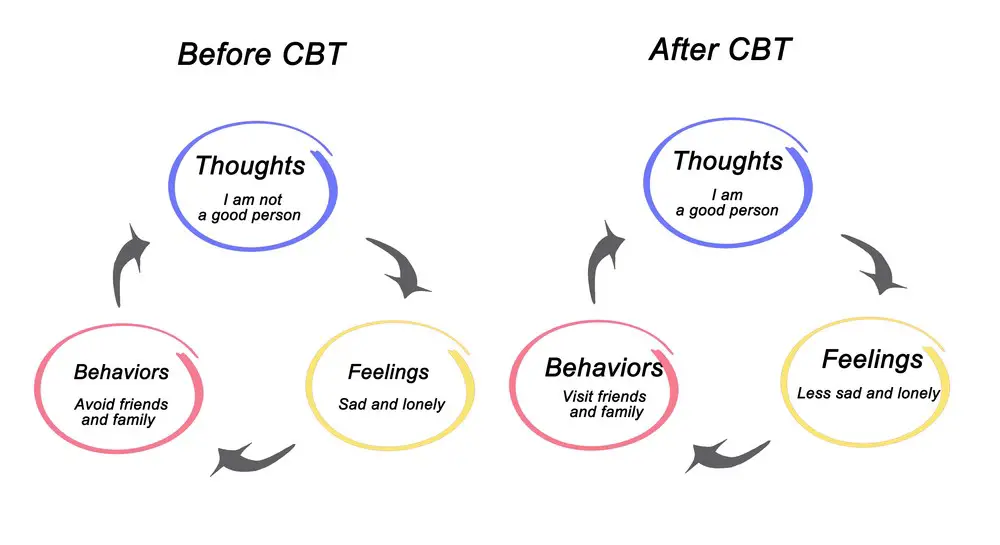 Cognitive-behavioral therapy (CBT) is another effective option for addressing dissociation and ADHD. CBT helps individuals identify and reframe negative thought patterns and develop healthier coping strategies. By working on changing these thought patterns and implementing coping skills, individuals are better equipped to manage their symptoms of ADHD, thus possibly reducing the occurrence of dissociative episodes.
Cognitive-behavioral therapy (CBT) is another effective option for addressing dissociation and ADHD. CBT helps individuals identify and reframe negative thought patterns and develop healthier coping strategies. By working on changing these thought patterns and implementing coping skills, individuals are better equipped to manage their symptoms of ADHD, thus possibly reducing the occurrence of dissociative episodes.
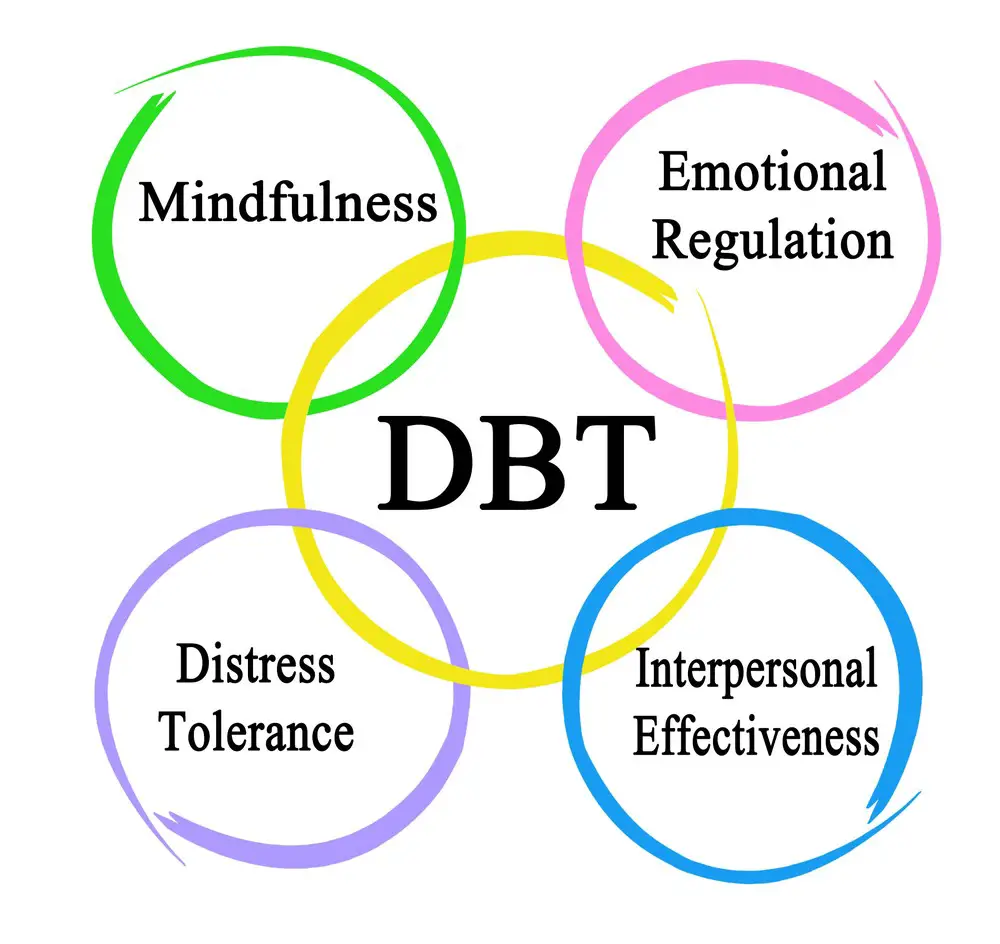 Dialectical behavioral therapy (DBT) is also useful for those experiencing dissociation concerning their ADHD. DBT focuses on four key components: mindfulness, distress tolerance, emotion regulation, and interpersonal effectiveness. These components teach individuals to be present at the moment, tolerate stressors without resorting to dissociation, manage emotions adaptively, and improve relationships, promoting a healthier mindset overall.
Dialectical behavioral therapy (DBT) is also useful for those experiencing dissociation concerning their ADHD. DBT focuses on four key components: mindfulness, distress tolerance, emotion regulation, and interpersonal effectiveness. These components teach individuals to be present at the moment, tolerate stressors without resorting to dissociation, manage emotions adaptively, and improve relationships, promoting a healthier mindset overall.
Another approach in addressing dissociative symptoms is Eye Movement Desensitization and Reprocessing (EMDR). This technique can be particularly helpful for individuals who may have experienced trauma or unresolved emotional issues contributing to dissociation. EMDR facilitates the processing of distressing memories and experiences, helping the individual to reduce their symptoms and improve their overall mental health.
Finally, hypnosis can be an effective tool in managing dissociation. Hypnosis enables individuals with ADHD to access their subconscious mind and identify unconscious triggers for their dissociative episodes. During hypnotherapy, individuals can develop coping strategies and increase their awareness of dissociative tendencies, enhancing their control over these symptoms.
In conclusion, various therapy techniques can help address dissociation as a symptom of ADHD. By employing these approaches, individuals will be better equipped to manage their symptoms and improve their overall well-being.
Other Mental Health Conditions
Dissociation is a complex phenomenon that can occur in various mental health conditions. While it is not a common symptom of ADHD, exploring other mental health disorders that might be present and potentially contribute to dissociative experiences is essential.
Anxiety is one mental health condition where dissociation can occur. People with anxiety disorders, including generalized and panic disorders, may experience temporary dissociation when facing intense stress or panic attacks.
Depression can also lead to episodes of dissociation. In some cases, an individual experiencing a major depressive episode may detach from reality, experiencing a disconnect from their thoughts and surroundings.
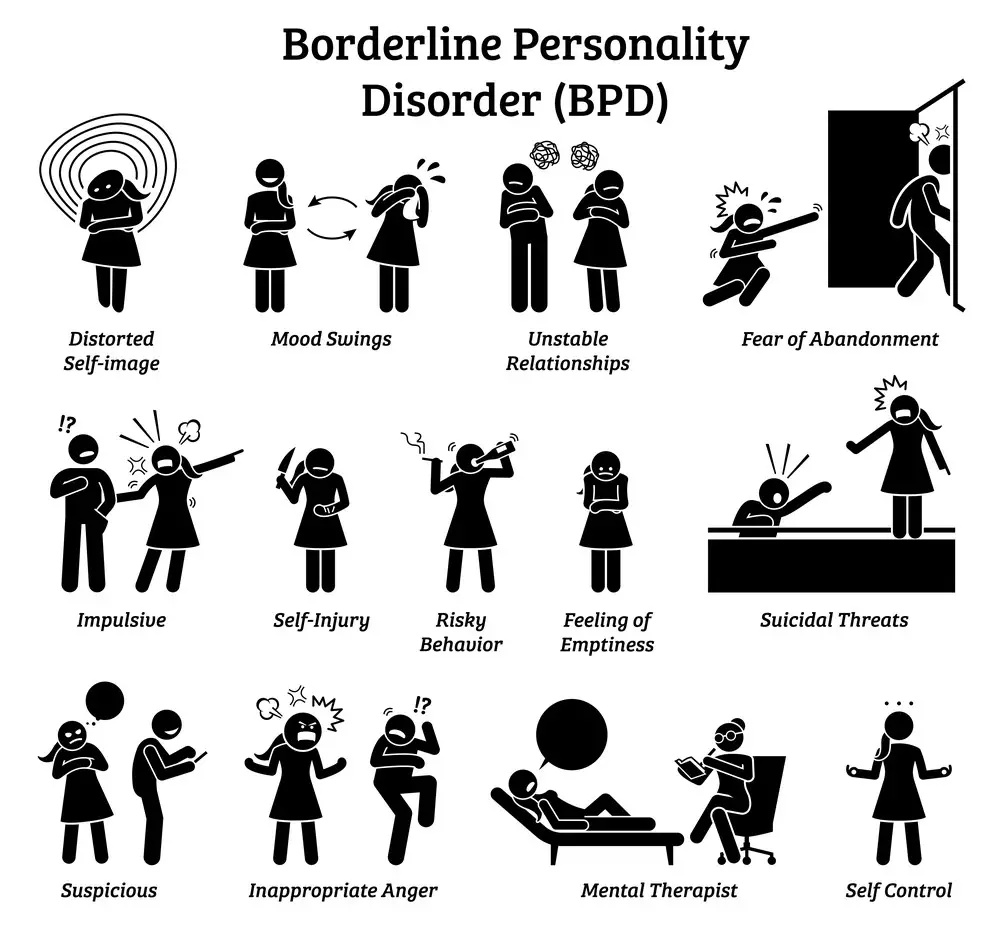 Borderline Personality Disorder (BPD) is another mental health disorder frequently involving dissociation. People with BPD often struggle with emotional regulation and a distorted sense of identity, leading to dissociative episodes during extreme emotional stress.
Borderline Personality Disorder (BPD) is another mental health disorder frequently involving dissociation. People with BPD often struggle with emotional regulation and a distorted sense of identity, leading to dissociative episodes during extreme emotional stress.
It is essential to differentiate between ADHD and these other mental health conditions when addressing dissociative symptoms. A thorough evaluation by a mental health professional can help clarify the diagnosis and ensure appropriate treatment and support are provided.
In conclusion, while dissociation is not a typical symptom of ADHD, it can occur with other mental health disorders such as anxiety, depression, and borderline personality disorder. Proper assessment and understanding of the individual’s unique mental health condition are crucial to providing appropriate care and addressing dissociative experiences.
Coping Strategies And Recovery
Individuals with ADHD may experience dissociation, impacting their daily tasks, relationships, and overall well-being. Identifying coping strategies and focusing on recovery is important to improve their quality of life.
One effective coping strategy is to create a structured daily routine. This can help individuals with ADHD to manage their time better, meet deadlines, and maintain concentration. Developing a daily schedule with clear milestones can assist them with staying focused throughout the day.
Building a strong support system consisting of family, friends, and professionals like therapists who can offer guidance and encouragement is also crucial. These individuals provide motivation and understanding, creating a positive recovery environment.
Employing stress-reduction techniques is another exploration avenue, as stress can exacerbate dissociation. Mindfulness, meditation, and regular physical activity can help minimize stress and support mental clarity.
In the workplace, it may be beneficial for an individual with ADHD to communicate clearly with their employer regarding their needs and accommodations. This could include more frequent breaks or a quieter work environment, ensuring they can perform their tasks effectively.
Developing healthy relationships is another crucial factor in recovery. Open communication, understanding, and mutual support in personal relationships allow individuals with ADHD to feel secure and emotionally stable.
Lastly, working with a mental health professional who can provide therapy and guidance can be instrumental in recovery. Cognitive-behavioral therapy and other therapeutic approaches are beneficial in addressing both ADHD and dissociation-related issues.
Focusing on coping strategies and recovery can significantly improve the lives of those experiencing dissociation as a symptom of ADHD. A sense of balance and well-being can be attained by incorporating these techniques and maintaining a supportive environment.
Conclusion
Dissociation as a symptom of ADHD has been explored through various perspectives. Individuals with ADHD may experience dissociative episodes due to increased levels of stress. Often, having ADHD can lead to difficulties maintaining friendships and understanding social cues, leading to heightened isolation and dissociation.
The impact of ADHD on one’s consciousness and sense of identity is also an essential aspect to consider. The struggle with maintaining attention and impulsivity can lead to an altered reality experience for some individuals with ADHD. This, in turn, may contribute to dissociative symptoms.
While dissociation is not a universally experienced symptom of ADHD, it’s crucial to recognize its co-occurrence for proper assessment and treatment. A comprehensive understanding of ADHD and dissociation can help healthcare professionals provide appropriate support and therapies, ideally improving the overall well-being of those affected.
Frequently Asked Questions

Does ADHD medication cause dissociation?
ADHD medications, such as stimulants, can sometimes cause side effects like anxiety or restlessness, but it’s rare for them to cause dissociation directly. Some individuals may experience increased dissociation, while others may find relief from dissociative symptoms due to improved focus and attention management from the medication. It’s important to consult with a healthcare provider if concerns about dissociation and medication arise.
How is zoning out related to ADHD dissociation?
Zoning out, or daydreaming, is common for many people, but for individuals with ADHD, it might be more frequent and intense. If zoning out interferes with daily functioning or causes distress, it could indicate ADHD-related dissociation. It’s essential to differentiate between typical zoning out and dissociative episodes that might require therapeutic intervention.
Can adults with ADHD experience dissociation?
Yes, adults with ADHD can experience dissociation. Dissociation can manifest in various ways, such as zoning out, feeling detached from oneself, or disconnecting from the environment. Adults with ADHD might not recognize their dissociative experiences, but understanding the relationship between ADHD and dissociation can help identify and manage dissociative symptoms more effectively.
Is overstimulation linked to dissociation in ADHD?
Overstimulation can contribute to dissociative symptoms in individuals with ADHD. Sensory overload, information overwhelm, or excessive stress can exacerbate ADHD symptoms, leading to dissociative experiences. Recognizing and managing overstimulation can help minimize the risk of dissociative episodes in people with ADHD.
Is dissociation more common in ADHD or depression?
ADHD and depression can be associated with dissociative symptoms, but the prevalence may vary. Depression can lead to feelings of emotional numbness, detachment, or disconnection, which are aspects of dissociation. In ADHD, dissociation often manifests as zoning out or losing focus. Comorbidity between ADHD and depression is common, and the presence of both disorders might increase the likelihood of experiencing dissociative symptoms.
How to differentiate between zoning out and dissociating in ADHD?
Zoning out is a normal experience that involves brief lapses in attention or daydreaming. In individuals with ADHD, zoning out might be more frequent. However, dissociation involves a more significant disconnection from oneself or the environment and often causes distress or impairs daily functioning. If zoning out negatively impacts an individual’s life or causes distress, it might indicate dissociative episodes instead and warrant professional assessment.
About the Author:
Jacob Maslow is a passionate advocate for mental health awareness and support. His journey began with personal challenges, including his struggles with ADHD. To manage his mental health, Jacob incorporates daily routines, such as extensive walks to clear his mind and taking Lexapro. He’s also a veteran of therapy, a testament to his commitment to personal growth and understanding.
Beyond his challenges, Jacob has firsthand experience with the devastating impact of narcissism. Despite court orders, his ex-partner, suffering from severe narcissism, has been alienating and weaponizing their two children against him. This ongoing battle, filled with breaches of court mandates, has only added fuel to Jacob’s fire to help others in similar situations. The bond he once shared with his children, an intimate and close relationship, is a constant reminder of the toll such behavior can have on families.
Using his voice, Jacob pens articles on mental health and the complexities of narcissism, aiming to be a beacon of hope and a source of information for those enduring similar hardships. His primary message is clear: overcoming mental health issues is possible. Additionally, Jacob runs a legal site dedicated to supporting individuals who face non-compliant spouses in custody battles.
In “Is Dissociation a Symptom of ADHD? Exploring the Connection”, Jacob delves deep into the realms of ADHD, further enriching the readers with his invaluable insights. Through his writings and experiences, he wishes to pave a path of healing, understanding, and perseverance for all.
- 3 Ways Wearing a Hat Can Help Lower Your Stress Levels - April 19, 2025
- Breaking the Silence: Why Men’s Mental Health Matters More Than Ever - April 15, 2025
- How to Transform a Home’s Patio Space into a Relaxing Space - March 23, 2025
This site contains affiliate links to products. We will receive a commission for purchases made through these links.

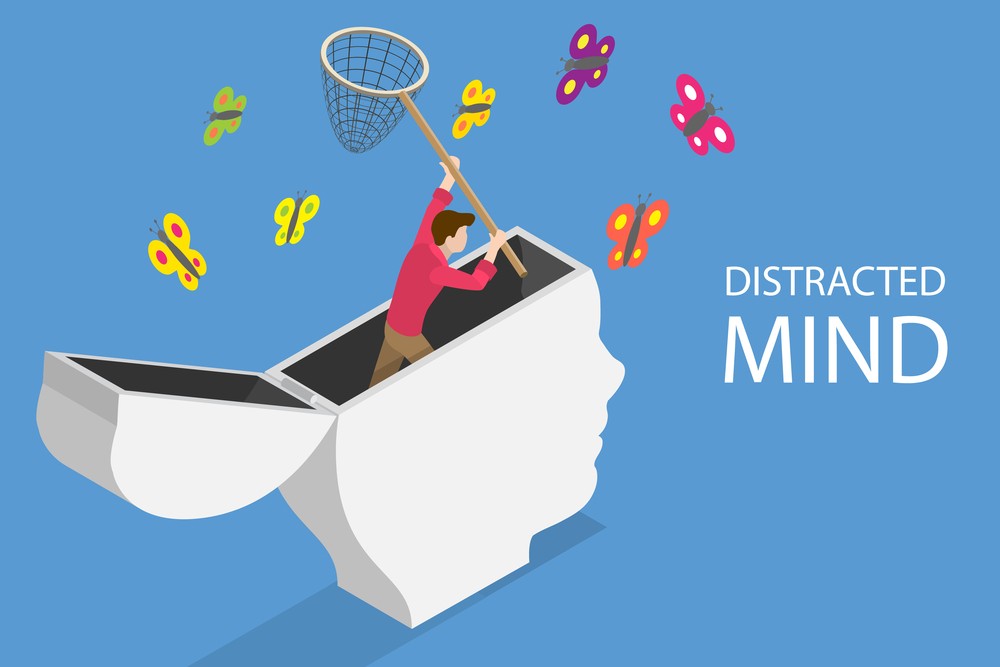
 Understanding Dissociation
Understanding Dissociation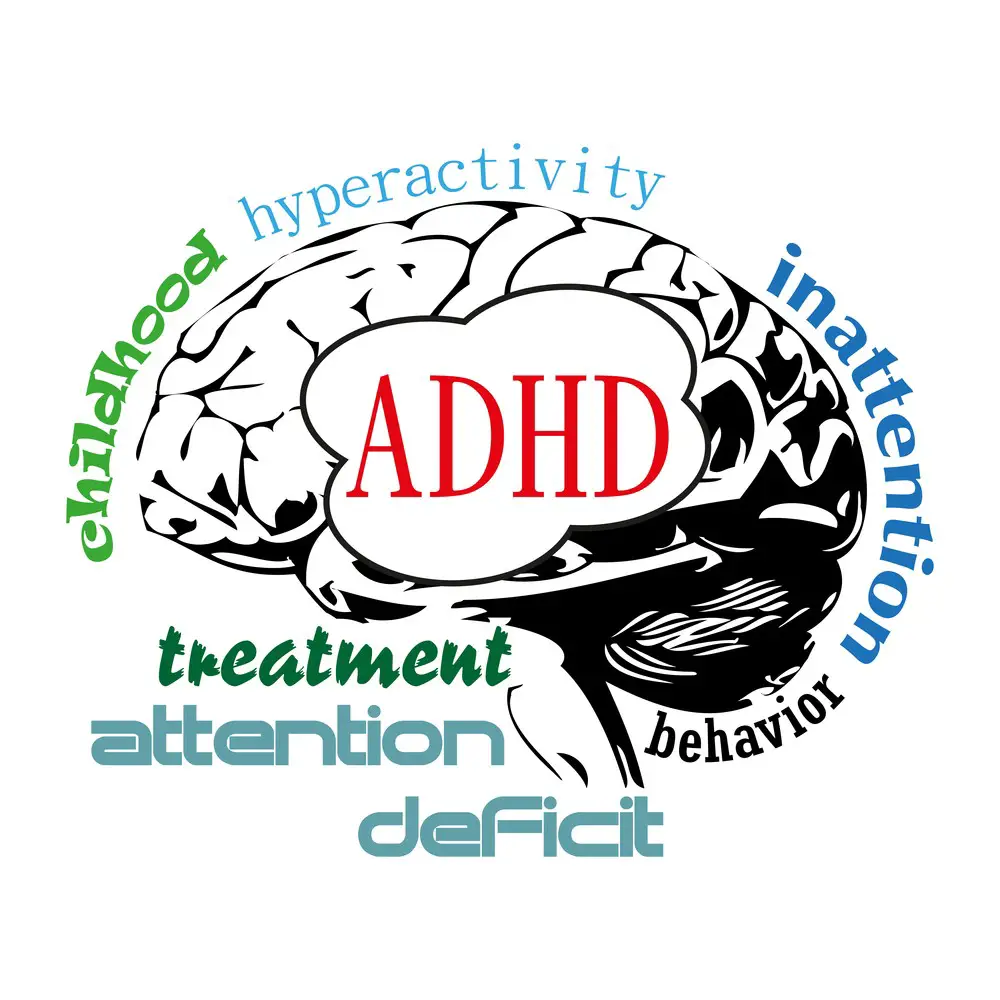 The Nature of ADHD
The Nature of ADHD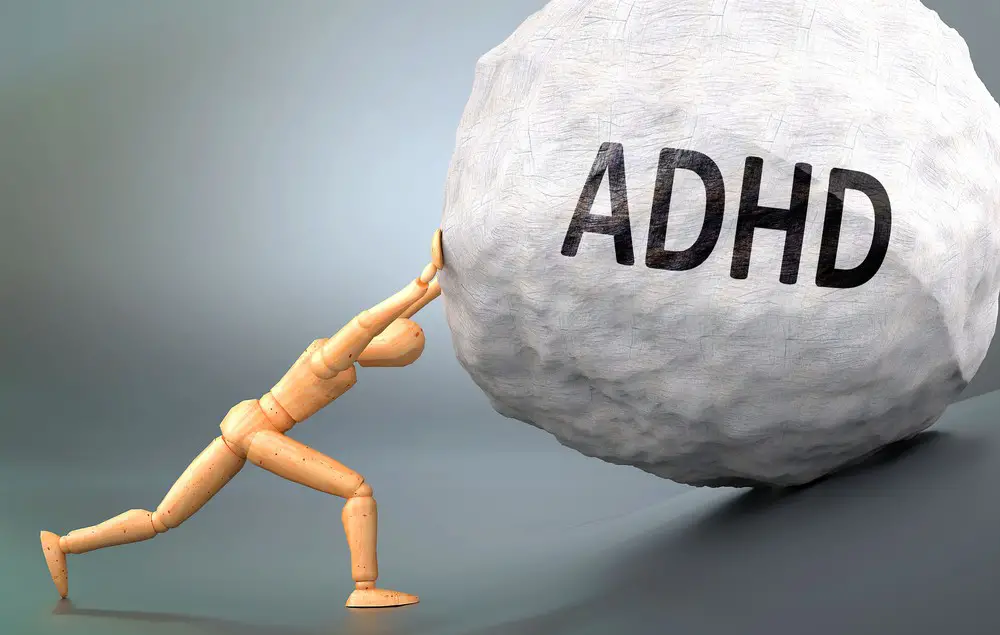 Symptoms of Dissociative Disorders and ADHD
Symptoms of Dissociative Disorders and ADHD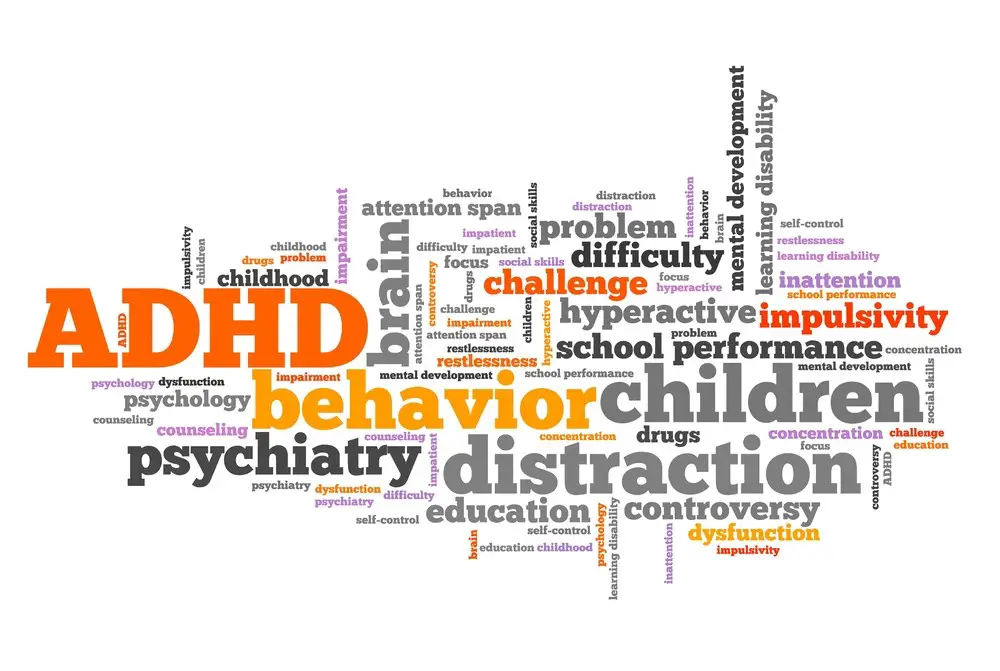 ADHD
ADHD Effects on Memory
Effects on Memory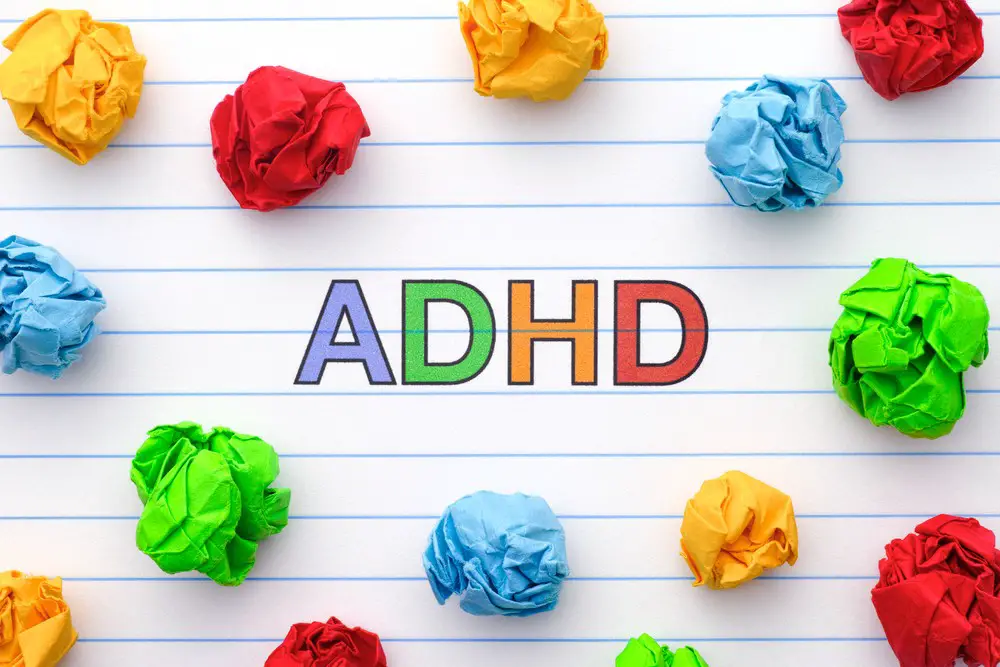 Link Between ADHD And Dissociation
Link Between ADHD And Dissociation Childhood And ADHD
Childhood And ADHD Relevant Therapy Techniques
Relevant Therapy Techniques
